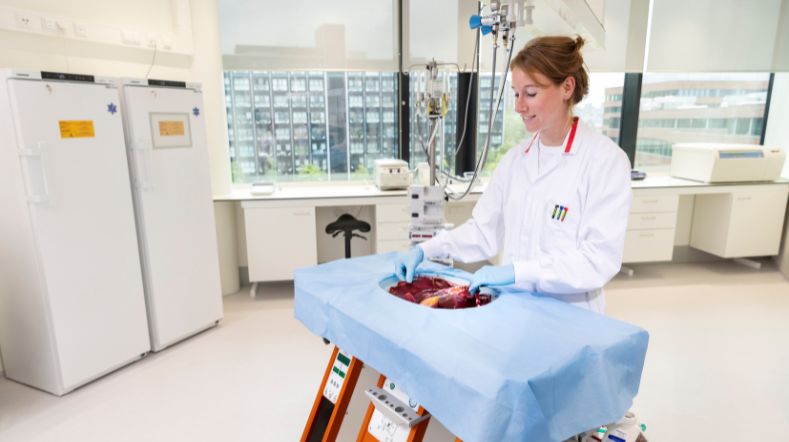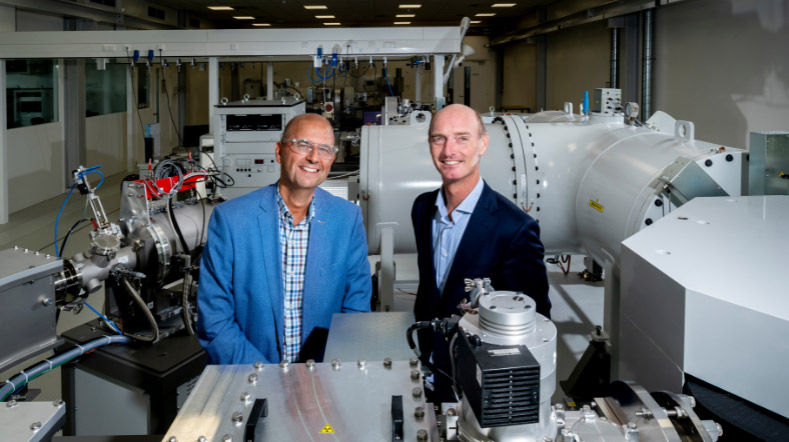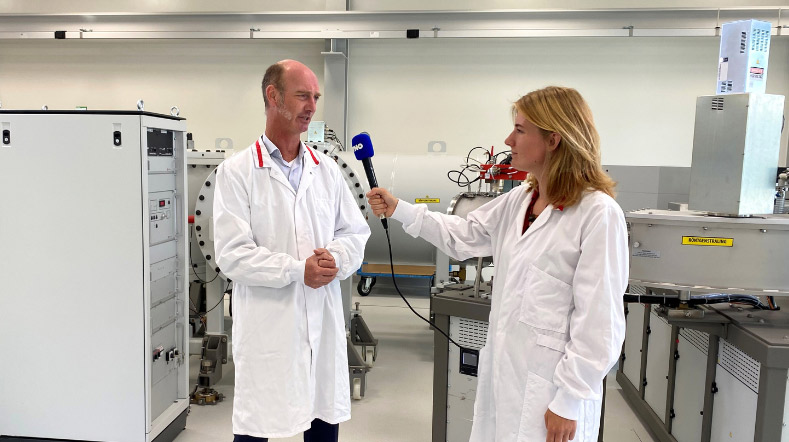
Translational preclinical efficacy models
Preclinical and early clinical trials can make the entire drug development process more effective and efficient. But only when the outcomes of those early trials accurately translate to later clinical ones. TNO offers expertise in highly translatable preclinical (in vitro and in vivo) efficacy studies for novel compounds aiming to treat metabolic, cardiovascular, and fibrotic diseases.
Addressing an industry need
Pharmaceutical, biotech, nutrition, and nutraceutical companies are searching for ways to accelerate and streamline their development process. But shortcuts in the preclinical or early clinical phases of novel compound development can lead to failure in lengthy and expensive clinical trials.
TNO puts its expertise to work in the earliest stages of compound development and provides the data to ensure that novel compounds are viable candidates for clinical study. Our translational models and innovative technologies provide accurate data that thoroughly answers your research questions.
Proven translatability
We recognise the specific complexities of metabolic, cardiovascular, and fibrotic diseases and the importance of accurately capturing this complexity in preclinical models. Therefore, we put a lot of effort into studying the replication of disease mechanisms and pathways in our models that are of known importance in patients. By continuously updating our knowledge and understanding of the models when new pathways come to light, we ensure they remain highly translational.
In addition, we validate our models by studying the effects of relevant clinical compounds, and regularly compare the effects of these compounds in our models to their clinical efficacy data.
Targeted efficacy studies
TNO offers contract-based efficacy studies with a focus on the generation of robust and relevant data. We put decades of expertise to work to design a study that is optimised for your specific research questions and/or safety concerns.
In this way, we ensure that our cell and mouse models remain optimally suited to explore the efficacy of your novel compounds. In addition, the necessary mouse studies are as efficient and effective as possible, and extract the maximum amount of useable data, so as to fulfil our responsibilities related to ethical animal treatment.
The TNO Ldlr-/-.Leiden mouse (pdf) accurately mimics the multi-organ metabolic dysfunction etiology and pathology of MASLD/MASH and fibrosis in humans. By using translational energy-dense diets without added cholesterol, these mice develop MASH and fibrosis in the context of obesity, insulin resistance, and atherogenic dyslipidemia. MASH development in this model recapitulates underlying disease pathways observed in patients. The model has been validated with many relevant pharmacological interventions.
The APOE*3-Leiden (E3L) transgenic mouse and the APOE*3-Leiden.huCETP (E3L.CETP) double transgenic mouse have been proven to be very suitable for testing the effects of treatments on plasma lipid levels, lipoprotein metabolism, and atherosclerosis. These models are uniquely responsive to all lipid-lowering drugs currently used in the clinic (at similar dosages and in a similar way) and enable atherosclerosis studies in a preventive and therapeutic design.
For sarcopenia and frailty, we offer mouse models based on two-week caloric restriction, alone or in combination with partial immobilisation. This combination model for muscle atrophy exhibits loss of muscle mass and function and recapitulates more pathways related to human sarcopenia than naturally aged mice. Read more in the paper 'Caloric Restriction Combined with Immobilization as Translational Model for Sarcopenia Expressing Key-Pathways of Human Pathology'.
We offer an extensive portfolio of in vitro and in vivo (mouse) models for fibrosis in the skin, lung, liver (incl. MASH), and kidney. In these models, we offer various analyses, including quantitative (incl. new collagen deposition) and qualitative collagen measurements, histology (fibrosis score, skin thickness measurements), gene expression measurements and inflammation parameters.
For CKD, we offer an advanced, translational, diet-induced, obese, diabetic, dyslipidemic, and hypertension-accelerated mouse model of diabetic kidney disease, which shows hyperfiltration followed by a progressive decline in renal function (GFR), albuminuria, pronounced glomerulosclerosis and tubulo-interstitial atrophy and fibrosis. Additionally, the model develops left ventricular hypertrophy and cardiac fibrosis suggestive of HFpEF. The model is sensitive to standard of care treatment (ACEi and SGLT2i) and is offered for testing the efficacy of interventions.
Partnering for understanding
In targeted public/private partnerships (PPPs), TNO digs deeper into relevant questions that can reveal new applications for the models, to gain molecular insight into disease mechanisms, to study organ cross-talk mediators during disease development and to identify new biomarkers. We are eager to develop even deeper understanding of disease mechanisms and progression in diseases ranging from obesity and MASLD/MASH to atherosclerosis, and from fibrosis to sarcopenia to diabetic kidney disease. We also aim to study and explore other disease areas.
ProLiver: insight into organ cross-talk
Metabolic Dysfunction-Associated Steatotic Liver Disease/Steatohepatitis, or MASLD/MASH (formerly known as NAFLD/NASH), not only affects the liver, but a variety of organs and processes. Treatment of complications related to metabolic overload requires a holistic view of the entire system. In a unique, five-year PPP, TNO partnered with leaders in both the pharmaceutical and nutrition industries to identify, test, and validate new proof-of-concept treatments that can slow disease progression and indirectly improve liver health by treating other affected organs.
Aiming for future development
As new therapeutic classes emerge, and new technologies expand the potential for even more accurate preclinical research, TNO will continue to accumulate knowledge. We continuously explore new translational readouts and therapeutic classes in order to create even more accurate and translational data about the effect of new interventions in humans.
In this way, we strive to remain the leader in translational model development and application, to help the industry accelerate and streamline the development of market-ready, effective interventions.
Want to know how TNO can answer your key research questions and accelerate your development process? Get in touch today.
Get inspired
Testing medicines outside the body: intestinal–liver–kidney model accelerates drug development


Preclinical ADME


TNO launches Peregrion to boost market impact of its technology that accelerates medicine development


PPP uncovers new insights into MASLD development


Time setters: reduce long waits for new medication with AMS




